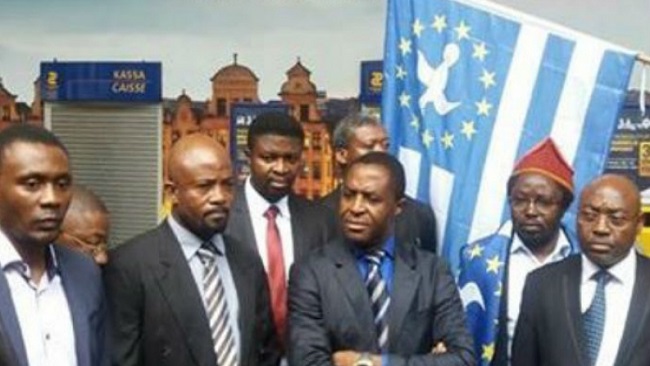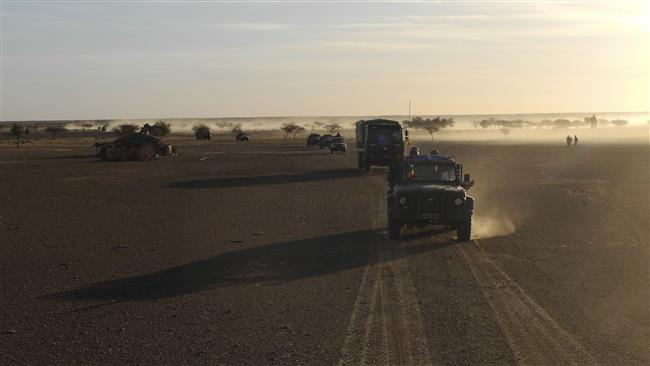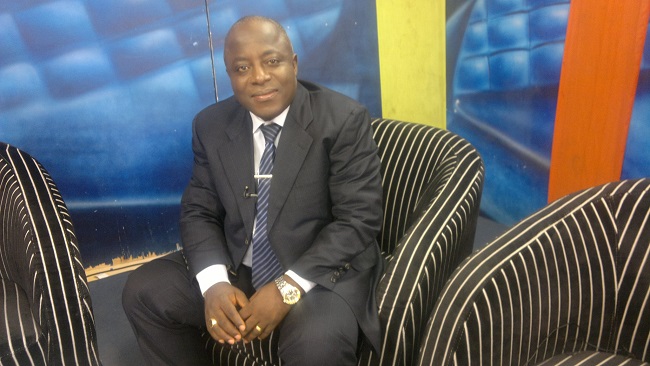18, January 2018
Zimbabwe’s Mnangagwa announces election in four to five months 0
Zimbabwe will hold elections in four to five months, a newspaper on Thursday quoted President Emmerson Mnangagwa as saying, the first time since independence the southern African state will conduct a vote that does not involve Robert Mugabe.
The vote, a litmus test of Mnangagwa’s democratic credentials, will be crucial to unlocking badly needed financial assistance and repairing relations with Western powers and international financial institutions.
Mnangagwa, a protege of Mugabe, came to power in November after a de-facto military coup when the 93-year-old was forced to resign after the military confined him to his Harare mansion.
It was the culmination of a power struggle between Mnangagwa and former first lady Grace Mugabe, who was being groomed by her husband as his potential successor.
Now Mnangagwa, 75, is under pressure himself to deliver on the economy and show that he is breaking with the policies of Mugabe, whose 37-year rule since independence in 1980 turned a promising country into a basket case and international pariah.
He promised the elections for the presidency, parliament and local government would be peaceful and told business leaders their investments would be secure and their profits safe.
“Zimbabwe is going for elections in four to five months’ time and we have to preach peace, peace and peace because we know it is good for us and we have no doubt that we will have peaceful elections,” Mnangagwa was quoted as saying by the official Herald newspaper during an official trip to Mozambique.
“We will ensure that Zimbabwe delivers free, credible, fair and indisputable elections to ensure Zimbabwe engages the world as a qualified democratic state.”
Under the constitution, Zimbabwe should hold elections between July 22 and Aug. 22, but parliament can choose to dissolve itself, triggering an earlier vote. The ruling ZANU-PF holds a two-thirds majority in parliament.
Since 2000, which coincided with Mugabe’s often violent seizure of land from white farmers, elections in Zimbabwe have been marred by political violence and disputes.
But the 2018 vote could catch the opposition flat-footed.
Mnangagwa’s main rival Morgan Tsvangirai is suffering from cancer, which has helped expose divisions in his Movement for Democratic Change party as officials scramble to take over leadership of the party.

The economy is suffering acute shortages of cash dollars, increases in prices of basic goods, high unemployment and low levels of foreign investment, making it the biggest challenge for Mnangagwa.
At a function ahead of next week’s World Economic Forum meeting in Davos, Mnangagwa said the extent of economic problems required Zimbabweans to work together as he promised to safeguard all investments in the country.
“All investments will be safe and secure in Zimbabwe. Foreign investors will be able to repatriate profits,” he told a gathering of government officials and business leaders.
To reinforce that Mnangagwa plans to govern differently to Mugabe, the government said in a document published on Thursday that it was considering setting up a special tribunal to determine compensation for former white commercial farmers.
In the past 18 years, there has been little investment in agriculture, the backbone of the economy, due to disputes over compensation between former white farmers and the government.
Analysts say resolving the emotive land issue could unlock foreign investment in agriculture and help mend ties between Harare and the West, which imposed sanctions over the seizures and alleged vote rigging by Mugabe.
Mnangagwa said he was going to the Davos meetings, the first such trip by any Zimbabwean leader, to “dispel the perception” that Zimbabwe is “an isolated island”.
Source: Reuters



























19, January 2018
Visit of CAF Delegation to Ambazonia leads to temporary internet access in Ambaland 0
On Wednesday the 17th of January 2018, Ambazonians woke up much to their amazement to find internet access restored in their country. After more than four months of complete internet shutdown, our people are ‘temporarily’ enjoying a fundamental freedom thanks to the ‘goodwill’ of someone in Yaoundé.
There have been several conferences, initiatives and lectures around the world over the last few years on the role of governments on internet freedom and human rights. The role of the internet can’t be overemphasized in the twenty-first century and the United Nations has stated unequivocally that it’s a fundamental human right along with freedom of Opinion and Expression.
Mindful of the presence of a CAF delegation in the country to scrutinize infrastructures to assess La Republique’s readiness to host next year’s AFCON, CPDM has shamelessly re-instated internet access in our country. The evidence is overwhelming that even the darkest minds in La Republique understand the ignominy of cutting off internet access. The simple truth is that Yaoundé has no respect for the human rights of Ambazonians. This flagrant abuse of a fundamental human right is intolerable. Whilst the excitement amongst the population is understandable, the unlawful activity of restricting internet access is one of the most shameful in a long list of unpardonable law-breaking actions from Biya and his mob.
Small and medium size businesses are struggling in Ambaland. Many small businesses have ceased trading which has resulted to higher unemployment in a country where joblessness is unacceptably high. Do the authorities in Yaoundé care about the loss of business and subsequent suffering in Ambaland? The answer is simply NO.
With high unemployment and dreadful misemployment, the youths of Ambaland are getting more and more frustrated. The cumulative effect of this gloomy scenario is the growth and continuous growth of a disenchanted populace. These people have a sense of worthlessness, and are left with no option but to vent their anger in guerrilla style attacks on the forces of La Republique. These attacks are becoming more and more frequent in Ambaland with devastating consequences.
The striking intellectual inanimation from the so-called leaders in Yaoundé is profusely ostensible. Until they realize that actions like cutting off the internet are counterproductive, the road to peaceful coexistence is rough and unexciting. The casualties their military is currently suffering stand to escalate.
Calling Ambazonians dogs, terrorists, banning the Consortium, firing at peaceful protesters and cutting off the internet etc haven’t yielded any positive result for Yaoundé. The results of these poorly advised and unlawful actions are violence and more violence.
Sessekou Asu Isong in London